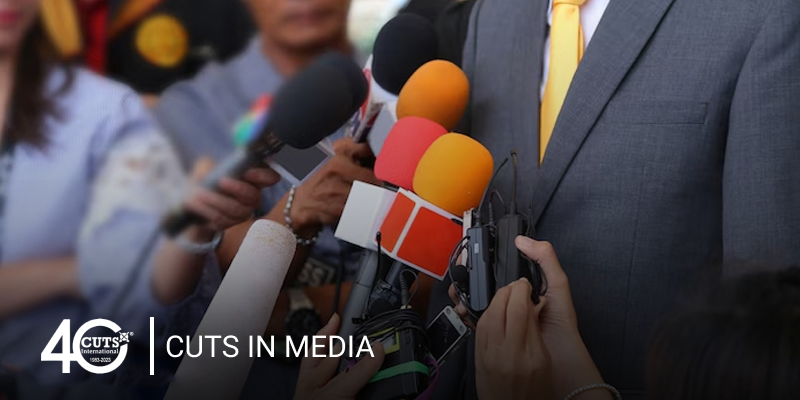The Panel on the future of trade-appointed to analyze the new challenges posed by globalization in the twenty-first century heard the views of members of the organization in Geneva today.
The Panel on the future of trade-appointed to analyze the new challenges posed by globalization in the twenty-first century heard the views of members of the organization in Geneva today.
This panel is an initiative of the Director General of the World Trade Organization (WTO), Pascal Lamy.
“it is about finding solutions to the XXI century challenges and to work more effectively,” said diplomatic sources, who explained that the heads of delegation intervened on behalf of their countries and not of the economic and regional groupings they belong to in the WTO.
In an organization where decisions are made by consensus, the decision-making process to promote and modernize the international trading system is stalled by differences between developed and developing countries, and the creation of this panel is an attempt by Lamy to seek solutions.
The differences were evident in the speeches of the countries, with the U.S. and the European Union (EU) insisting that it is possible to make multilateralism compatible with the increase in bilateral and regional agreements.
The United States observed that there is little awareness within the organization that, for the first time, the major economic actors don’t share the same views and a new consensus in a new context is needed, without forgetting the importance of convincing that trade leads to development for everybody.
The Washington representative warned that there is a growing gap between countries that seek to respond to the crisis through more openness, and countries promote protectionist policies in times of crisis.
There were no specific reference to any country, but U.S. and European interventions were responded to by Argentina, who stated that the global discussion on the changing scenario does not take into account the views of emerging countries.
For Argentina, there are important issues, such as the food industry, which are off the discussion agenda and should be given prominence, such as policies on the import of biofuels that benefit not only the producer but also the consumer in rich countries.
China, meanwhile, stressed the need to increase support for the development of global supply chains to revitalize a multilateral system that it believes is sinking.
In this sense, Brazil stressed that the deadlock of WTO negotiations is not related to the growing influence of emerging markets or to any crisis of multilateralism, but rather to the existence of conflicting agendas as a result of the increased membership in the organization that makes consensus more difficult.
Mexico defended the benefits of trade liberalization, which have led to an improvement in the living conditions of its citizens, while Chile warned that the fact that the WTO negotiations do not work could “contaminate” other bodies of the organization, such as the dispute settlement mechanism.
Switzerland told members of the panel that is essential to know what the companies with a significant presence in this panel of 12 experts want.
Representing the business world include the Jordanian businessman Talal Abu-Ghazaleh, the chairman of the Brazilian Embraer Frederico Fleury Curado, the Chairman of BusinessEurope Jürgen Thumann, the Chairman of KS Group Corporation Yoshiaki Fujimori, and the Vice Chairman of Kerry Group Limited George Yeo.
Coming from the civil society are Sharan Burros, Secretary General of the International Trade Union Confederation, and the general secretary of the NGO CUTS International, Pradeep Singh Mehta.
And from the international and economic/financial community are the UNDP Administrator, Helen Clark, the president of the U.S. Chamber of Commerce Thomas Donohue, the honorary president of the International Chamber of Commerce Victor Fung, the Vice President of the World Economic Forum Josette Sheeran, and former President of Botswana Festus Gontebanye.
It is expected that the analysis of the Panel will be completed in early 2013, and compiled into a non-binding document that should spur debate among WTO members on the new trade challenges.
